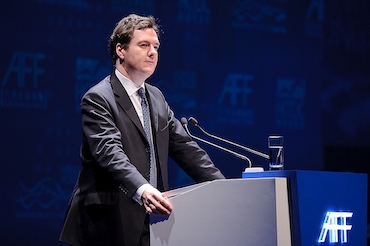A Financial Planning director fears that the Lifetime Allowance may escape a cull of George Osborne’s pension policies.
The underlying reasons for its introduction and continued reduction may mean it is here to stay, says David Smith, of Tilney, ahead of Philip Hammond's first Autumn Statement on 23 November.
The new cabinet has already scrapped a couple of Mr Osborne’s key initiatives.
In the three months since Mr Hammond has been Chancellor, he has distanced himself from the deficit target, while also performing a U-turn on the secondary annuities market.
Mr Smith said: “Trying to reduce the ever mounting pension tax relief bill of circa £34bn, the former Chancellor successively reduced the Lifetime Allowance from a high of £1.8m to just £1m from 6 April 2016. What originally started as a curb on the relief for the rich has now very much become a challenge for much of the already squeezed middle England.
“It clearly is a tax charge that has been ill thought out. It groups all types of pension scheme under the same umbrella yet two schemes are very rarely the same. For example, Defined Benefit pension schemes are assessed against the LTA by multiplying the level of benefit provided.”
He said: “The cynic in me is convinced it is plainly a method of restricting the level of benefit payable on public sector pension schemes. Alas, whilst common sense would hope Hammond’s next cull was this one, the underlying reason behind it may mean it is here to stay.”
Andy James, head of retirement planning at Towry, said the LTA did make sense when it was introduced in 2006. But now, with the annual limit at £40,000 and for some in receipt of high incomes, just £10,000 and talk of it everyone reducing to £20,000 in the near future, he said it no longer does.
He said: “The point is that at £20,000 a year you could not fund a pension of £1 million over a normal working life of 40 years. That means therefore that you would only exceed the allowance if you get growth on your investments within the pension. The better your investments do the more tax you will pay. The lifetime allowance therefore becomes a tax on investment returns rather than on contributions. Being taxed for investing wisely seems somewhat unfair, particularly as pension investing is supposed to be tax free.”
He said: “If we are to continue to restrict the amount you can put into pensions each year, let’s at least allow those contributions to grow without any worry about the tax consequences of making good investment choices.”

